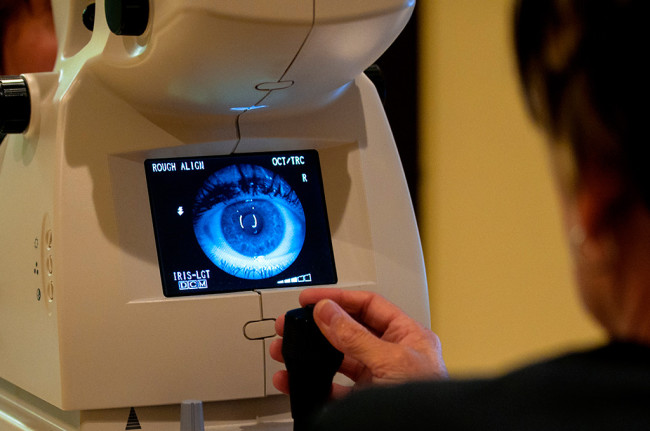Did you know?

Diabetic Retinopathy
Diabetic retinopathy is primarily the result of diabetes damaging the normal blood vessels in the retina. It is the most common cause of visual…

Macular degeneration is a very common eye problem and the most frequent cause of visual impairment in people older than 60.
It tends to cause a gradual decrease in vision over a period of many years or even decades. The cause of macular degeneration is primarily your genetics: there is nothing that you did to cause the disease and nothing that you could have done to prevent it. Unfortunately, there is also nothing that anybody can do to stop the disease’s progression; however, there is some evidence that supplementing your diet with vitamins may slow it down. There are several commercially available vitamin supplements readily available in stores. CRMD recommends MacuHealth, which is not found in stores, but available from your referring doctor.
Macular degeneration only affects the central vision. It will not cause total blindness and you will always have your side-vision. This means that you will always be able to remain independent.

As macular degeneration develops, clear, normal vision (shown left) becomes impaired by a general haziness. With advanced macular degeneration, a blind spot forms at the center of your visual field (shown right).
Dry macular degeneration is the most common form of macular degeneration. It causes a slow progressive decrease in central vision over a time span of many years or decades.
85% of patients will not develop abnormal blood vessels. (See wet macular degeneration below.) However, these abnormal vessels could develop at any time. To monitor your condition, use an Amsler Grid – the piece of paper with the straight lines on it from your appointment. The first sign that these blood vessels have developed is distortion within your vision, which will cause the lines to appear distorted. If you should start to see a progressive increase in distortion of the lines, contact the office immediately.
Unfortunately, about 10-15% of patients with macular degeneration will develop abnormal blood vessels and leakage of fluid underneath the retina. This is known as wet macular degeneration. When these blood vessels develop, they can cause a rapid decrease in the vision in a matter of days or weeks. If we can find these blood vessels before they do any significant damage, we can provide treatments that will prevent or delay severe vision loss. There are numerous medications available that can successfully control the abnormal vessels, as well as injections that will need to be performed intermittently.